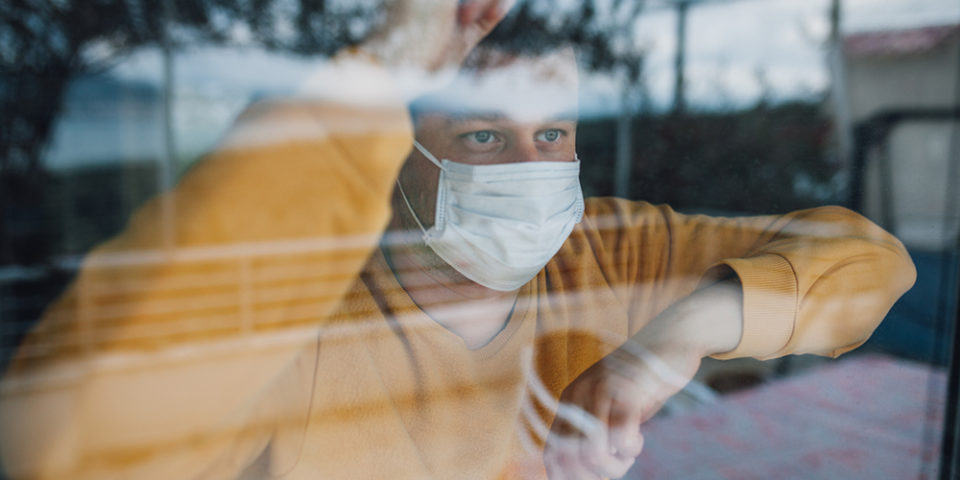The lingering effects of COVID-19
As the COVID-19 pandemic continues, we are learning that some people who are infected with the virus have symptoms that linger beyond the typical three-to six-week recovery time. Infectious disease expert Helmut Albrecht, MD, explained more about these symptoms and why prevention is the best way to protect yourself.
“COVID-19 comes with its share of symptoms, but once you are over the virus, some symptoms may linger and others may appear,” said Dr. Albrecht. “Some post COVID-19 symptoms that have been experienced include continued loss of taste or smell, personality changes (such as irritation) and tiredness. These symptoms are very typical.”
However, sometimes the symptoms last much longer.
“There is a group being called “long haulers” who experience lingering side effects after being infected with COVID-19. It is weeks to months before they feel like themselves again. Not everyone has the same symptoms. Some even have cycles where they get better and then get worse. This is due to lingering inflammation where the body is still cleaning things up after the virus. It is important for individuals experiencing these prolonged symptoms to take it easy. Time is typically the cure,” he said.
Dr. Albrecht described some common symptoms experienced by “long haulers.”
Personality changes
“Some have reported experiencing personality changes after COVID-19, such as feeling irritable or easily angered. These personality changes will eventually resolve, but it can take some time,” said Dr. Albrecht. “Remember that it isn’t just the virus that is causing these symptoms, but having to deal with a critical illness and realizing you aren’t invincible. Dealing with having gotten this virus can be hard for some, and that is okay.”
Brain fog
“The brain fog that some are reporting to experience after having COVID-19 will lift slowly. While it may be slower than you would like, you can expect a full recovery. Some have described this brain fog as feeling like they are taking cold medication when they are not,” said Dr. Albrecht.
Loss of taste
“This symptom is known to linger for a long time. Some patients have had it stick around for months with no full recovery yet. Typically, it gets better over time. Initially, you may only taste sweet or salty as your taste returns. This is a result of nerve cells that are affected by the virus and do not regenerate quickly. You can physically feel back to normal and still have this symptom stick around for a while,” he said.
Prevention is key
Dr. Albrecht said it is important for everyone to continue taking precautions.
“There is no magic to staying safe. We all just need to continue to social distance, wear masks and practice good hand hygiene. Be sure not to touch your eyes, nose or mouth if you have touched anything else. Everyone should also already be taking a multivitamin. Multivitamins contain zinc which helps with viral infections. And when it is your turn to get the vaccine, get it to protect yourself and others.”
He said most people who get the vaccine are experiencing mild symptoms such as headache, chills and fever after their second dose – a sign their immune systems are revving up and creating immunity, which is good.
“Both vaccines available are so effective that it is stunning. They are very safe. The mRNA technology used in both vaccines disappears and disintegrates in your body quickly. The facts are in favor of this vaccine. Hardly any other vaccine is as convincing as this one,” he said.
Although he understands that some may have concerns, Dr. Albrecht said it’s important to weigh getting the disease, which affects your whole body, with getting a vaccine to protect yourself and others.
“The virus is so much worse than the vaccine. The Centers for Disease Control recommends all who have experienced the virus to also get the vaccine.”
Have questions about the COVID-19 vaccine?
Find answers to frequently asked questions about the COVID-19 vaccine, including how to get the shot.


